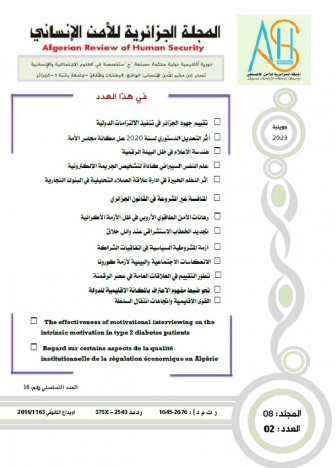Managing the corruption crisis according to the United Nations Convention against Corruption (UNCAC) and the extent of its implementation by countries: Algeria as a model
DOI:
https://doi.org/10.59791/arhs.v8i2.1999Keywords:
United Nations, The United Nation Convention, Against Corruption) UNCAC), Algeria, the 2030 Agenda for Sustainable DevelopmentAbstract
The United Nations plays an important role in addressing and managing international crises as a global body, especially issues affecting development, human rights and the environment. The United Nations, with all its programs and structures, should follow a clear strategy to manage this global crisis, and limit its spread at the global level through the development of the UNCAC Anti-Corruption Convention (UNCAC), to address the phenomenon of corruption that is widespread in all fields, by implementing the provisions and principles of the United Nations Convention against Corruption, as it has been able in recent years to legislate laws and renew appropriate institutions, working on the independence and efficiency of the judiciary, and participating in international, regional and even Arab conferences, and searching for effective ways and mechanisms To reduce the corruption crisis, to achieve security, peace and development, and to embody the 2030 Agenda for Sustainable Development on the ground.





